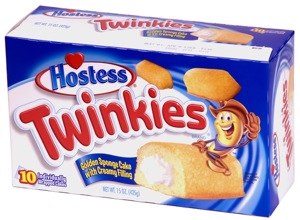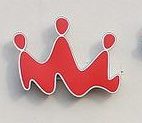Calories: The Only Way To Gain or Lose Weight

In 2010 university professor Mark Haub invented the Twinkie diet. He ate a diet of only processed junk food, but kept his calorie intake bellow his TDEE. Basically, he ate the worst foods possible, but kept his calorie intake low.
Before starting this diet he was clearly overweight. During the diet he lost weight. That’s right, he ate the most processed, artificial foods and still lost weight.
Professor Haub ate around 1,600 calories a day, and lost about 27 pounds in two months.
The point is not that junk food will help you lose weight or be healthy. Professor Haub knows that the junk food he ate was not good for his total health. He would have been much better off eating a diet of fruits, veggies and other whole foods while staying at 1,600 calories per day.
The point is that counting calories is what matters when it comes to putting on weight or losing weight. It is not the nutritional values of the food. It is not the amount of fats or carbs in the fats. To lose or gain weight, the most important thing is the amount of calories you consume compared to the amount of calories your body burns. If you eat more calories than you burn you will gain weight. It’s that simple.
Now, building muscles and staying healthy requires more than just calories.
Super Size Me
Another one of these test-diets was performed in the 2004 film Super Size Me. Here the hero (Morgan Spurlock) goes on a fast-food diet. He shows how unhealthy it is, how his physical and mental health suffer. The thing to note is that whenever he is offered to “super size” his meal, he accepts. What this means is that he is constantly eating more calories than his TDEE.
Others have followed in his footsteps and ate nothing but fast food, but they limited their calorie intake. Doing this led them to lose weight.
My point is that it isnt just the food that Morgan ate that makes him feel so terrible. It’s the huge amount of calories that he is consuming. He is not working out or doing anything to offset this large amount of calories.
His fast-food diet is totally unhealthy, but it’s the calories that are making him gain the weight, not the type of food he is eating.
Why Even Diet?
So why even bother going on a specific type of diet? Whether you are trying to lose weight or gain weight, it’s all about the calories you intake. So why are so many people so passionate about certain types of diets (low-carb, low-fat, low-whatever)?
Two reasons. Weight lose and weight gain can be done in an unhealthy manner. The two examples above of a fast-food diet and a Twinkie diet are examples of changing ones weight while creating a highly unhealthy diet. Most diets claim to be extremely healthy. Low-carb practitioners will go on about how terrible carbs are and how they are the root of all our health problems. Low-fat diet fans will do the same thing about fats.
The second reason is that these diets do help their practitioners change the amount of calories they consume, leading to actual changes in their weight. They practitioners see that the diet produced actual results (which were due to the calories consumed, not the amount of carbs or fats) and they believe in the diet.
I am not going to argue with anyone about the nutritional benefits or carbs or fats in their diet. I like having a good balance of both in my diet and it has worked great for me. I am active, strong and healthy.
I will argue with anyone who claims that the best way to lose weight is to eat less fats/carbs/processed foods/whatever. None of that is true. The only way to lose or gain weight is to eat less or more calories than your TDEE.
If you are on a diet, great. Stick with it. But don’t let them convince you that weight change has to do with anything other than calories consumed and burned.



